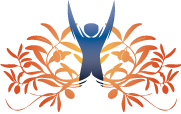At Mount Regis Center, we offer an intensive, evidence based approach to cocaine use disorder treatment. We offer a variety of therapeutic interventions that help our clients build a strong foundation for long-term recovery.
Understanding Cocaine
Learn about cocaine addiction and substance use disorder
Cocaine is the most powerful stimulant made from 100% natural substances. It is generally diluted or “cut” with inert materials such as corn starch, sugar or baby powder to increase the profit. Other times it’s diluted with amphetamine which is another stimulant or heroine which is an opiate and has the opposite effect. Cocaine creates a strong sense of exhilaration and euphoria. Individuals taking it often feel carefree, alert and have a great deal of energy. This is followed by a “crash” where the individual experiences agitation, depression, paranoia and anxiety. The effects of cocaine last for about 2 hours.
Statistics
Cocaine addiction statistics
12-month prevalence rates for adults using cocaine in the U.S. have been estimated at .3%. Rates are higher for men (.4%) than women (.1%). The highest rates are found in those ages 18-29 years old (.6%) and lowest among those ages 45-64 years old are much lower (.1%). Regarding ethnicity, highest rates were found in Native Americans (.8%), while lower rates were found for African Americans (.4%), Hispanics (.3%), whites (.2%), Asian Americans (.1%) and Pacific Islanders (.1%).
Causes and Risk Factors
Causes and risk factors for cocaine addiction
It is generally accepted there is no single cause responsible for any type of substance abuse. Instead it is believed to be caused by an interaction of genetic and environmental factors.
Genetic: It has long been known that cocaine abuse runs in families. Individuals who have a first degree relative with this substance use disorder are at a higher risk for developing the disorder than others.
Brain Chemicals: There is some evidence that repeated exposure to cocaine causes changes in certain genes that lead to altered levels of a certain brain chemical called dopamine. Dopamine is associated with the rush that is experienced when an individual takes cocaine. This rush is what is largely responsible for the addiction process.
Brain Structures: Certain structures and areas of the brain such as the amygdala and prefrontal cortex have been linked specifically to drug cravings including cocaine cravings. In individuals with cocaine abuse disorders these areas have been shown to display various differences compared to the same brain areas in individuals who aren’t abusing substances.
Effects of the Pleasure Centers of the Brain: Cocaine has been shown to have negative effects on the brain’s pleasure center by leading it to stop responding to naturally occurring pleasure related stimuli. Thus, it begins to change until it will only respond to the presence of cocaine. In the drugs absence the individual will no longer be able to experience pleasure and will feel extremely depressed sometimes to the point of becoming suicidal. Thus, the individual continues taking the drug to avoid that negative mood state.
Signs and Symptoms
Signs and symptoms of cocaine addiction
Symptoms of cocaine addiction include:
- Mood/Psychological symptoms:
- Cocaine taken at greater doses or over a longer period of time than intended
- Unsuccessful attempts to cut down
- Lots of time spent obtaining, using or recovering from cocaine
- Continued use despite knowing it is leading to or exacerbating a psychological condition
- Paranoia at high doses
- Behavioral symptoms:
- Inability to fulfill major role responsibilities
- Important activities given up
- Use in hazardous situations
- Physical symptoms:
- Cravings for the drug
- Continued use despite knowing it is leading to or exacerbating a physical condition
- Tolerance or the need for more of the drug over time to achieve the desired effect
- Loss of the sense of smell
- Nosebleeds
- Difficulty swallowing
- Chronically runny nose
- Social symptoms:
- Despite resulting in social or interpersonal problems, continued use of the drug
- Social withdrawal from friends and family members who aren’t using the drug
- Avoidance of social settings
Effects
Effects of cocaine addiction
While it may seem like cocaine results in only pleasurable effects in the short term, over the long term it can result in a number of problems. Effects of cocaine use include:
- Personality changes
- Irritability, anger outbursts
- Insomnia
- Decreased Appetite
- Vomiting
- Headaches
- Anxiety
- Legal problems
- Financial problems
- Loss of relationships, divorce
- Hallucinations
- Nasal infections
- Increased respiration
- Sweating
- Violent behavior
- Chest pain
Co-Occurring Disorders
Cocaine addiction & co-occurring disorders
Stimulant related drugs often co-occur with other substance abuse disorders in particular substances with calming effects such as sedatives, used to decrease to the negative effects experienced when coming down from the stimulant related high. Cocaine users most often use alcohol for this purpose. In addition, stimulant use disorder may also co-occur with:
- Posttraumatic stress disorder (PTSD)
- Antisocial Personality Disorder
- Attention Deficit Hyperactivity Disorder
- Gambling Disorder
Withdrawal & Overdose
Effects of cocaine withdrawal and overdose
Withdrawal symptoms associated with cocaine are similar to those associated with all stimulants. These include:
- Fatigue
- Vivid, troubling, dreams
- Insomnia or hypersomnia
- Increased hunger
- Motor retardation or agitation









